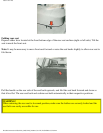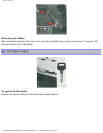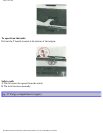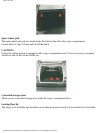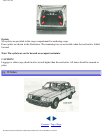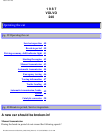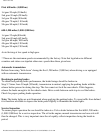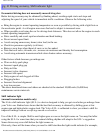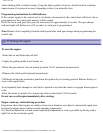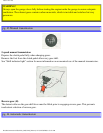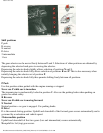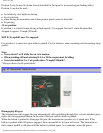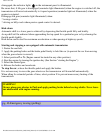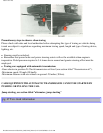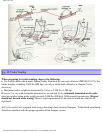
1987 Volvo 240
pg. 41 Driving economy, Shift indicator light
Economical driving does not necessarily mean driving slow
Better driving economy may be obtained by thinking ahead, avoiding rapid starts and stops and
adjusting the speed of your vehicle to immediate traffic conditions. Observe the following rules:
● Bring the engine to normal operating temperature as soon as possible by driving with a light foot on
the accelerator pedal. A cold engine uses more fuel and is subject to increased wear.
● When possible avoid using the car for driving short distances. This does not allow the engine to reach
normal operating temperature.
● Drive carefully and avoid rapid acceleration and hard braking.
● Do not exceed speed limit.
● Avoid carrying unnecessary items (extra load) in the car.
● Check tire pressures regularly (cold tires).
● Remove snow tires when threat of snow or ice has ended.
● Note that roof racks, ski racks, etc., increase air resistance and thereby fuel consumption.
● Avoid using automatic transmission kick-down feature unless necessary.
Other factors which decrease gas mileage are:
● Worn or dirty spark plugs
● Incorrect spark plug gap
● Dirty air filter
● Incorrect valve clearance
● Incorrect idle speed
● Dirty engine oil and clogged oil filter
● Dragging brakes
● Incorrect front end alignment
● Low tire pressure
The above mentioned items and others are checked at the standard 10,000 mile (16,000 km)
maintenance service intervals.
Shift indicator light
(manual transmission models only)
The Volvo shift indicator light (S.I.L.) is a device designed to help you get even better gas mileage from
your Volvo car. Studies have shown that the best fuel economy is obtained by shifting gears at low
engine rpm and high relative engine load. The Volvo S.I.L. is calibrated to show you when to shift for
improved mileage without sacrificing smooth acceleration.
Use of the S.I.L. is simple. Shift to next higher gear as soon as the light comes on. You may find after
using the S.I.L. for some time that your natural shifting rhythm will adapt to the S.I.L.'s suggestion.
Some drivers may even shift before the light comes on.
Obviously, there will be times when you need to shift later than the light would indicate (for example,
file:///K|/ownersdocs/1987/1987_240/87240_02.htm (3 of 14)12/30/2006 7:53:27 AM



